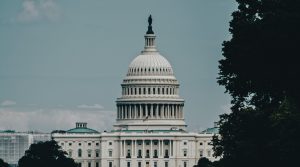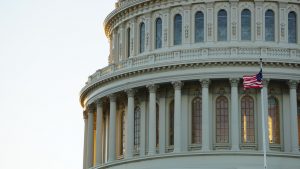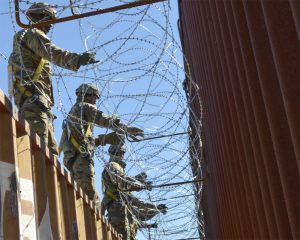The House Foreign Affairs Committee, with Chair Michael McCaul (R-TX) at the helm, continues its investigation of our chaotic withdrawal from Afghanistan by conducting closed-door, transcribed interviews with Washington officials and Service Members who were on the ground at Hamid Karzai International Airport (HKIA) in August of 2021. We encourage you to read the POLITICO article that uncovers stark contrasts between the testimonies of those who were actually in Afghanistan overseeing and conducting the withdrawal and the Biden administration’s rose-colored portrayal of the situation. A candid examination of the discrepancies between these narratives is necessary to ensure accountability, transparency, and informed decision-making in future foreign policy endeavors.
On 15 September 2023, Samuel Aronson, an aide to evacuation lead John Bass, who was responsible for determining who could and could not get into HKIA, delivered a candid and sobering assessment of the situation during his HFAC testimony. Aronson poignantly asserted, “Let me be clear – I cannot call this evacuation a success.” He went on to recall that more than 200 people were killed at HKIA alone, including 13 American Service Members, and in his words, “thousands more like me struggle with invisible scars and moral injuries.” His statements highlighted significant discrepancies between his first-person experiences and how the Biden administration touted the success of the withdrawal to the American people:
- Afghan Government’s Collapse: Aronson emphasized that the collapse of the Afghan government was not an unforeseen event but rather the result of systemic issues that had been building for years. This starkly contrasts with the administration’s narrative that the collapse was unexpected and largely due to rapid Taliban advances.
- Evacuation Challenges: Aronson painted a vivid picture of the chaotic evacuation efforts at Hamid Karzai International Airport (HKIA). He described scenes of desperation and chaos that contradicted the administration’s assertion of a “successful” evacuation.
- Taliban’s Control: Aronson’s testimony underscored the reality of the Taliban’s control over Afghanistan, which conflicted with the administration’s statements that they were not in control of the entire country.
- Humanitarian Concerns: Aronson recalled his concerns about the dire humanitarian situation in Afghanistan, including the fate of women and girls under Taliban rule. This stood in contrast to the administration’s narrative that they would hold the Taliban accountable for their actions.
These contrasting accounts have significant implications for U.S. foreign policy and the American public’s perception of the Afghanistan withdrawal:
- Accountability: Aronson’s testimony raises questions about accountability for the decisions leading up to the withdrawal and the evacuation process. It highlights the need for a comprehensive review of the administration’s actions and decisions.
- Public Trust: The disparities between Aronson’s testimony and the administration’s narrative erode public trust. Transparency and truthfulness are essential in maintaining trust in government actions, especially in matters of national security.
- Policy Reevaluation: The conflicting narratives should prompt a reevaluation of U.S. policy towards Afghanistan. Aronson’s insights suggest that the situation was more complex than initially presented, necessitating a more nuanced approach to future engagements in the region.
- Humanitarian Concerns: The ongoing humanitarian crisis in Afghanistan demands our attention and action. Aronson’s testimony highlights the urgent need for international efforts to address the suffering of the Afghan people.
The Biden Administration failed to see what any practitioner who had spent time in Afghanistan knew – Afghanistan would not last without a functional government assisted by the United States. Samuel Aronson will not be the last official to speak out against the tragic months surrounding the withdrawal. SOAA, and many groups like us, will not forget the tragedy of the Afghanistan withdrawal and will work to keep this Administration accountable. Samuel Aronson is only the latest reminder of the dissent surrounding the President Biden’s foreign policy decisions – he will not be the last.






